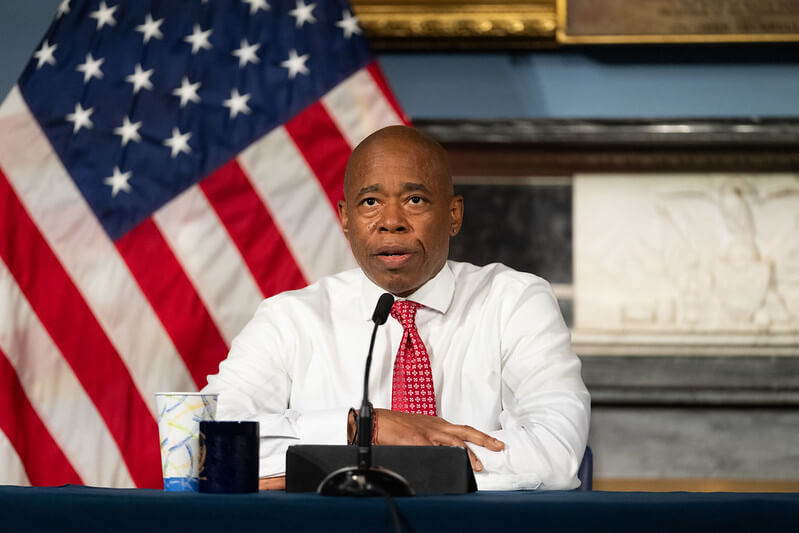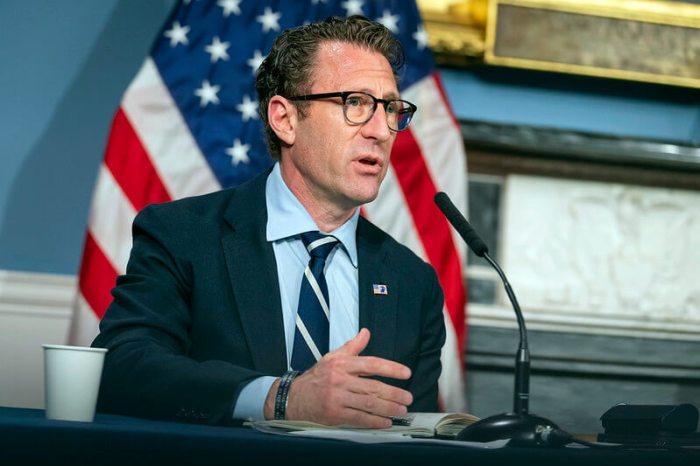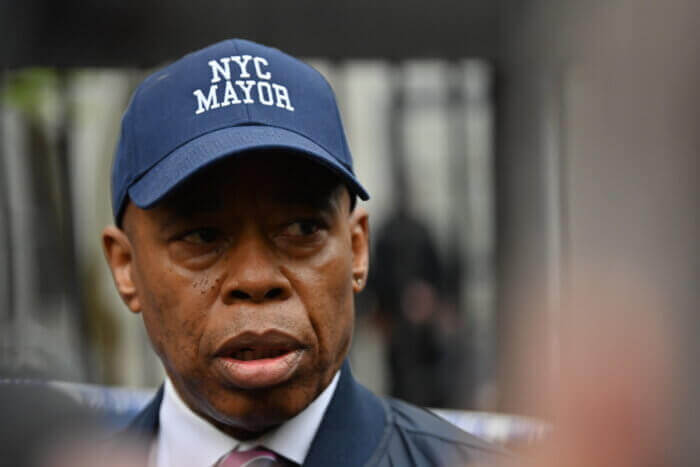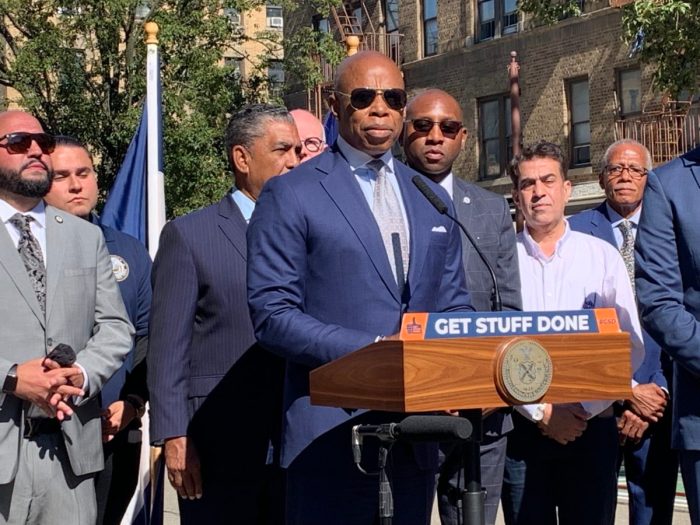The Adams administration, citing the ongoing migrant crisis, has made a newly revised request of a Manhattan Supreme Court to suspend the city’s long-standing mandate that it provide shelter to anyone in need. The request, however, immediately drew the ire of homeless and immigrant advocates.
In a letter to the court late Tuesday night, the administration laid out its request to modify the 1981 Callahan v. Carey consent decree that established the mandate, known as right-to-shelter, that would exempt it from the obligation in certain circumstances. The missive came after the judge in the case, Erika Edwards — who has since recused herself from the proceedings — ordered the city to explain its latest request during a court conference late last month.
The letter details two criteria for suspending the mandate: when the city or state have declared certain kinds of states of emergency and when the number of single adults entering shelters, during or for a two-week period prior to the state of emergency, is 50% higher than before the emergency. According to the letter, that would be calculated by assessing the shelter population over the preceding two years, excluding times of other declared housing-related emergencies.
Such a change is necessary, the city argues, as the right-to-shelter has become “outmoded and cumbersome” amid the ongoing migrant influx, which was not anticipated when the consent decree was issued over 40 years ago. The city’s shelter population has exploded since the influx began in April 2022, from around 45,000 at that time, to roughly 116,700 as of Oct. 1 — a 159% rise.
The mayor’s Chief Counsel Lisa Zornberg said in a migrant crisis briefing on Wednesday that the administration’s latest request of the court seeks to give it the “flexibility” necessary to navigate the continuing flow of new arrivals.
“It makes clear that at this particular juncture, New York City is not seeking to terminate the Callahan decree altogether,” Zornberg said. “Rather, it’s trying to meet the emergencies of the moment by seeking to modify or temporarily suspend the decree in a way that brings sensible relief. Because from a legal perspective, it is just not sustainable for this consent decree from 40-plus years ago, to be imposing requirements and the constant threat of lawsuits as New York City needs flexibility to navigate through a humanitarian crisis.”
But attorneys with the Legal Aid Society — who represent the Coalition for the Homeless in the right-to-shelter case — slammed the administration’s latest request in a Wednesday morning virtual press conference.
Josh Goldfein, a Legal Aid staff attorney, said the broad changes the city is seeking would be a “fundamental repudiation” of the safety guaranteed under the right-to-shelter that could leave thousands sleeping on the streets.
“After 40 plus years of having a right-to-shelter, of having basic fundamental protection for human beings in New York City of the ability to be safe from the elements, the city would change the rules so that they could turn essentially anybody away into the street where they would be at risk of harm or death,” Goldfein told reporters.
On top of giving it much needed relief for dealing with the migrant influx, the city contends the change it is seeking would simply put it on the “same legal footing” as the state’s other 57 counties, which it says are far more able to control who enters their shelter systems.
“This proposed modification will return the city to the same legal footing as the rest of the state while it and others deal with this crisis; it will permit the city to conduct shelter-eligibility screenings subject to the requirements of state law; and it will afford the city flexibility to continue addressing the crisis in a humane and practical manner,” the letter reads.
With over 122,700 migrants having arrived in the Big Apple over the past 18 months — roughly 61,000 of whom are currently in the city’s care — and thousands more arriving each week, the administration says this move would help alleviate the influx’s immense strain on its resources. That’s especially true given the continued lack of significant federal aid and resources the city has requested over the past year, the administration says.
“The City also has no reason to expect that the federal government will take any actions to place the City on a sustainable trajectory anytime in the near future,” the letter reads.
The administration’s quest to suspend the right-to-shelter law started in late May, when it originally asked the court to pause the mandate when the city lacked the “resources or capacity” to comply with it. While the mayor and administration officials have insisted they are simply seeking flexibility and not to do away with the decades old law, Adams has many times publicly stated he does not believe the right-to-shelter should apply to the migrant crisis.
However, Goldfein charges that the city’s request is “poorly drafted” and that its proposed formula is “confusing” and “arbitrary.”
“What are we going to do? We’re going to set up a counter and when you know the right number person crosses the line, then suddenly there’s no more right-to-shelter,” he asked. “That seems like not the way to operate a system that is meant to protect human beings from injury and death.”
Additionally, Goldfein argued the protections under state law that govern shelter rules for New York’s other 57 counties have in numerous cases led to homeless individuals outside the five boroughs being turned away from shelters and left with nowhere to go. If the same standard was applied to the city, he said, it would lead to thousands of New Yorkers sleeping on the streets.
On top of that, Goldfein said he didn’t understand why the city was making its broadest attempt to change the shelter obligation now, considering the federal and state governments have complied with some of its biggest demands. That includes President Biden recently extending and redesignating Temporary Protected Status for Venezuelans who entered the country before July 31 this year, which would allow thousands more migrants in New York to work, and a new state program to resettle migrants who can legally work outside the city.
“[It] seems like you know, they finally have the tools they need, manage this and rather than implement them, they’re going to devote a lot of time and energy to removing the right to shelter for all New Yorkers, not just the new arrivals,” he said.


































